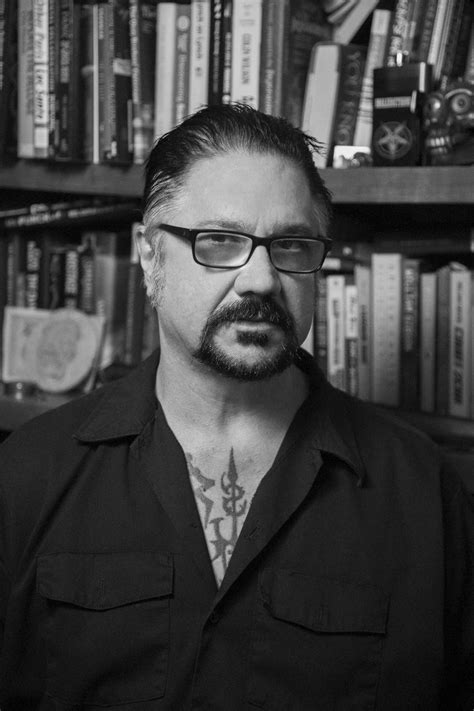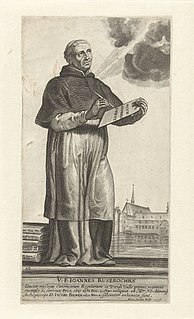A Quote by Benjamin Peirce
The object of geometry in all its measuring and computing, is to ascertain with exactness the plan of the great Geometer, to penetrate the veil of material forms, and disclose the thoughts which lie beneath them? When our researches are successful, and when a generous and heaven-eyed inspiration has elevated us above humanity, and raised us triumphantly into the very presence, as it were, of the divine intellect, how instantly and entirely are human pride and vanity repressed, and, by a single glance at the glories of the infinite mind, are we humbled to the dust.
Quote Topics
Above
Beneath
Computing
Disclose
Divine
Dust
Elevated
Entirely
Exactness
Forms
Generous
Geometry
Glance
Great
Heaven
How
Human
Humanity
Humbled
Infinite
Inspiration
Instantly
Intellect
Lie
Material
Measuring
Mind
Object
Our
Penetrate
Plan
Presence
Pride
Raised
Repressed
Single
Successful
Them
Thoughts
Us
Vanity
Veil
Very
Were
Which
Related Quotes
And so it is with our own past. It is a labour in vain to attempt to recapture it: all the efforts of our intellect must prove futile. The past is hidden somewhere outside the realm, beyond the reach of intellect, in some material object (in the sensation which that material object will give us) of which we have no inkling. And it depends on chance whether or not we come upon this object before we ourselves must die.
Let us watch against pride in every shape - pride of intellect, pride of wealth, pride of our own goodness. Nothing is so likely to keep a person out of heaven, and prevent them from seeing Christ, as pride. So long as we think we are something we shall never be saved. Let us pray for and cultivate humility; let us seek to know ourselves correctly, and to find out our place in the sight of a holy God.
In this external world, which is full of finite things, it is impossible to see and find the Infinite. The Infinite must be sought in that alone which is infinite, and the only thing infinite about us is that which is within us, our own soul. Neither the body, nor the mind, nor even our thoughts, nor the world we see around us, is infinite.
The world of ideas which it [mathematics] discloses or illuminates, the contemplation of divine beauty and order which it induces, the harmonious connexion of its parts, the infinite hierarchy and absolute evidence of the truths with which it is concerned, these, and such like, are the surest grounds of the title of mathematics to human regard, and would remain unimpeached and unimpaired were the plan of the universe unrolled like a map at our feet, and the mind of man qualified to take in the whole scheme of creation at a glance.
Pride... is a very common failing, I believe. By all that I have ever read, I am convinced that it is very common indeed; that human nature is particularly prone to it, and that there are very few of us who do not cherish a feeling of self-complacency on the score of some quality or the other, real or imaginary. Vanity and pride are different things, though the words are often used synonymously. A person may be proud without being vain. Pride relates more to our opinion of ourselves, vanity to what we would have others think of us.
The memories which peaceful country scenes call up, are not of this world, nor of its thoughts and hopes. Their gentle influence may teach us how to weave fresh garlands for the graves of those we loved: may purify our thoughts, and bear down before it old enmity and hatred; but beneath all this, there lingers, in the least reflective mind, a vague and half-formed consciousness of having held such feelings long before, in some remote and distant time, which calls up solemn thoughts of distant times to come, and bends down pride and worldliness beneath it.
It is only great pain--that slow, sustained pain that takes its time, in which we are, as it were, burned with smoldering green firewood--that forces us philosophers to sink to our ultimate profundity and to do away with all the trust, everything good-natured, veil-imposing, mild and middling, on which we may have previously based our humanity. I doubt that such a pain makes us 'better'--but I know that it makes us deeper.
Prayer is a gift from Almighty God that transforms us, whether we bow our heads in solitude, or offer swift and silent prayers in times of trial. Prayer humbles us by reminding us of our place in creation. Prayer strengthens us by reminding us that God loves and cares for each and every soul in His creation. And prayer blesses us by reminding us that there is a divine plan that stands above all human plans.
This is where you first failed us. You gave us minds and told us not to think. You gave us curiosity and put a booby-trapped tree right in front of us. You gave us sex and told us not to do it. You played three-card monte with our souls from day one, and when we couldn't find the queen, you sent us to Hell to be tortured for eternity. That was your great plan for humanity? All you gave us here was daisies and fairy tales and you acted like that was enough. How were we supposed to resist evil when you didn't even tell us about it?
God who created us has granted us the faculty of speech that we might disclose the counsels of our hearts to one another and that, since we possess our human nature in common, each of us might share his thoughts with his neighbor, bringing them forth from the secret recesses of the heart as from a treasury.
Pride looks back upon its past deeds, and calculating with nicety what it has done, it commits itself to rest; whereas humility looks to that which is before, and discovering how much ground remains to be trodden, it is active and vigilant. Having gained one height, pride looks down with complacency on that which is beneath it; humility looks up to a higher and yet higher elevation. The one keeps us on this earth, which is congenial to its nature; the other directs our eye, and tends to lift us up to heaven.
When love has carried us above all things ... we receive in peace the Incomprehensible Light, enfolding us and penetrating us. What is this Light, if it be not a contemplation of the Infinite, and an intuition of Eternity? We behold that which we are, and we are that which we behold; because our being, without losing anything of its own personality, is united with the Divine Truth.
Planetary democracy does not yet exist but our global civilization is already preparing a place for it. It is the very Earth we inhabit linked with Heaven above us. Only in this setting can the mutuality and the commonality of the human race be newly created with reverence and gratitude for that which transcends each of us and all of us together.
Think of admitting the details of a single case of the criminal court into our thoughts, to stalk profanely through their very sanctum sanctorum for an hour, ay, for many hours! to make a very barroom of the mind's inmost apartment, as if for so long the dust of the street had occupied us,--the very street itself, with all its travel, its bustle, and filth, had passed through our thoughts' shrine! Would it not be an intellectual and moral suicide?







































